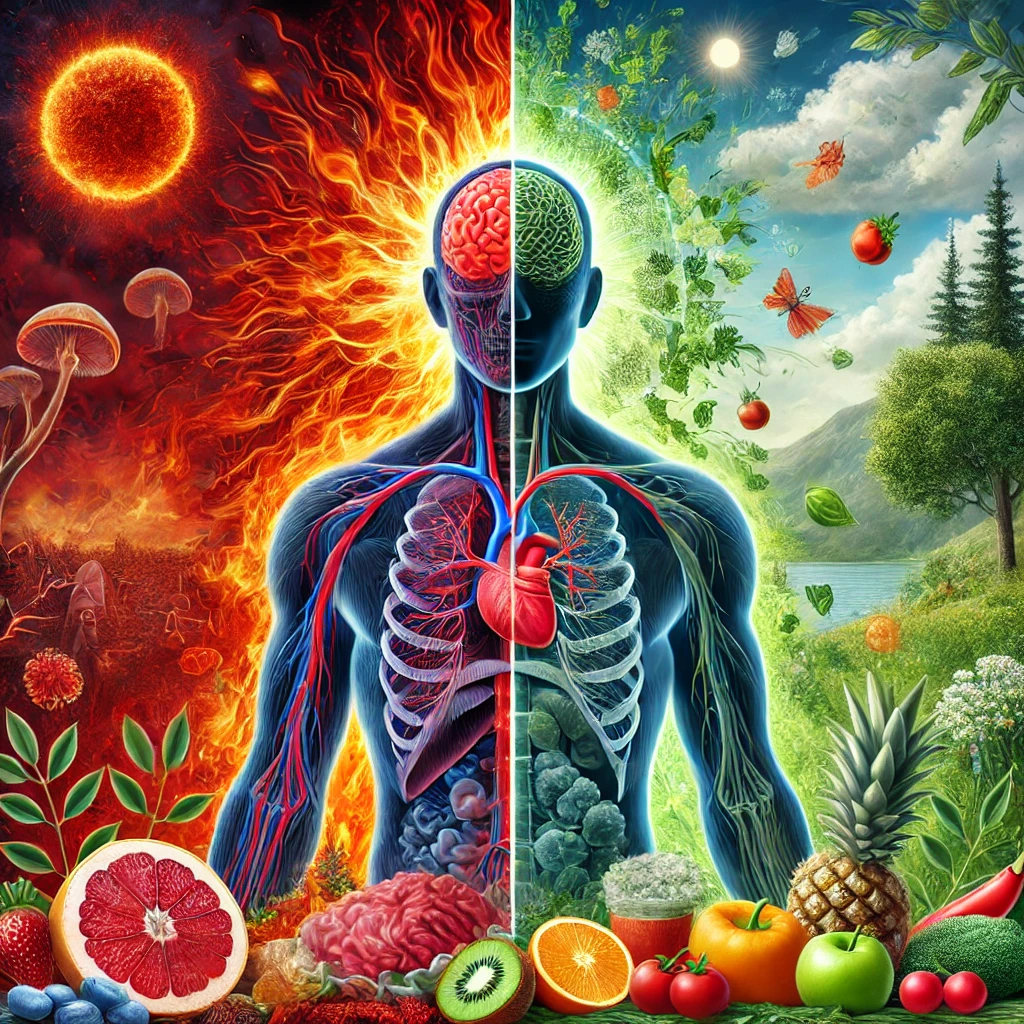The debate over organic versus non-organic foods extends beyond mere nutrition; it delves into the intricate relationship between diet and brain health. Studies reveal compelling links between organic diets and improved cognitive function, memory retention, and behavior regulation.
Impact On Brain Function
Chemicals found in non-organic foods can disrupt neurotransmitter balance in the brain, leading to heightened aggressiveness, cognitive decline, and increased susceptibility to neurodegenerative diseases like Alzheimer’s and dementia. Conditions such as ADD, ADHD, and MS have also been linked to exposure to certain pesticides and additives commonly found in non-organic food products.
Remarkably, research demonstrates that prisoners provided with organic diets exhibit reduced aggression, fewer incidents of violence, and enhanced learning capabilities. Initiatives like organic gardening programs in prisons further underscore the transformative potential of organic nutrition on behavior and rehabilitation.

A groundbreaking study conducted at Berkeley highlighted the profound impact of organic diets on reducing aggressive behaviors and preventing recidivism among inmates. This pioneering research underscores the significance of dietary choices in shaping not only individual health but also societal well-being.
The transformative power of changing diets extends far beyond nutritional value, profoundly influencing behavior and rehabilitation outcomes, as evidenced by the remarkable journey of Mark, a former inmate whose life took a pivotal turn through dietary intervention.
Mark’s tumultuous past was marked by a series of aggressive outbursts and confrontations, landing him in and out of correctional facilities. His volatile behavior seemed intractable, defying conventional rehabilitation efforts. However, a revolutionary initiative introduced organic gardening programs within the prison walls, offering inmates like Mark an opportunity for redemption through holistic nourishment.
Reluctance
Initially skeptical, Mark reluctantly participated in the organic gardening program, tending to crops and cultivating fresh produce. As he immersed himself in the therapeutic rhythm of planting, nurturing, and harvesting, something remarkable began to unfold. The pesticide-free foods grown within the prison’s confines became a source of sustenance not only for the body but also for the soul, igniting a profound transformation within Mark.
With each bite of nutrient-rich organic fruits and vegetables, Mark felt a shift in his demeanor. The volatile anger that once consumed him gradually ebbed away, replaced by a sense of calm and clarity he had never known. His cognitive function sharpened, and his memory retention improved, allowing him to engage more deeply with rehabilitation programs and educational initiatives offered within the prison.
As the days turned into weeks and months, Mark’s progress became evident to both fellow inmates and correctional staff alike. His once-aggressive tendencies gave way to empathy, understanding, and a newfound sense of purpose. Encouraged by his remarkable transformation, Mark embraced opportunities for personal growth and self-improvement, actively seeking avenues for rehabilitation and skill development.
Result
Upon his release, Mark emerged from the confines of prison not as a hardened criminal, but as a rehabilitated individual empowered by the transformative potential of organic nutrition. Freed from the shackles of his past, he embarked on a journey of redemption and renewal, inspired to live a life guided by health, harmony, and hope.
Mark’s story is just one of many testament to the profound impact of organic diets on behavior and rehabilitation outcomes. Through initiatives like organic gardening programs in prisons, individuals like Mark are given a second chance to reclaim their lives and rewrite their destinies, one organic meal at a time.
Explore the compelling evidence supporting the benefits of organic nutrition for brain health and behavior modulation:
- Study: Organic Food Reduces Aggressive Behavior in Prisoners
- Research: Effects of Organic Diets on Cognitive Function and Memory
- Investigation: Organic Gardening Programs in Prisons and Rehabilitation
Discover how embracing an organic lifestyle can nurture not just the body, but also the mind, paving the way for a healthier, more harmonious existence.









